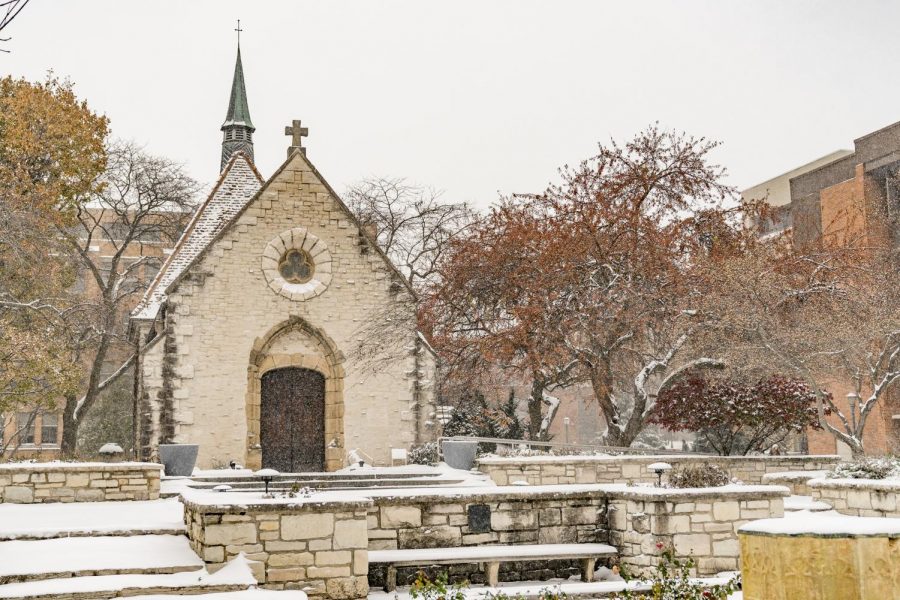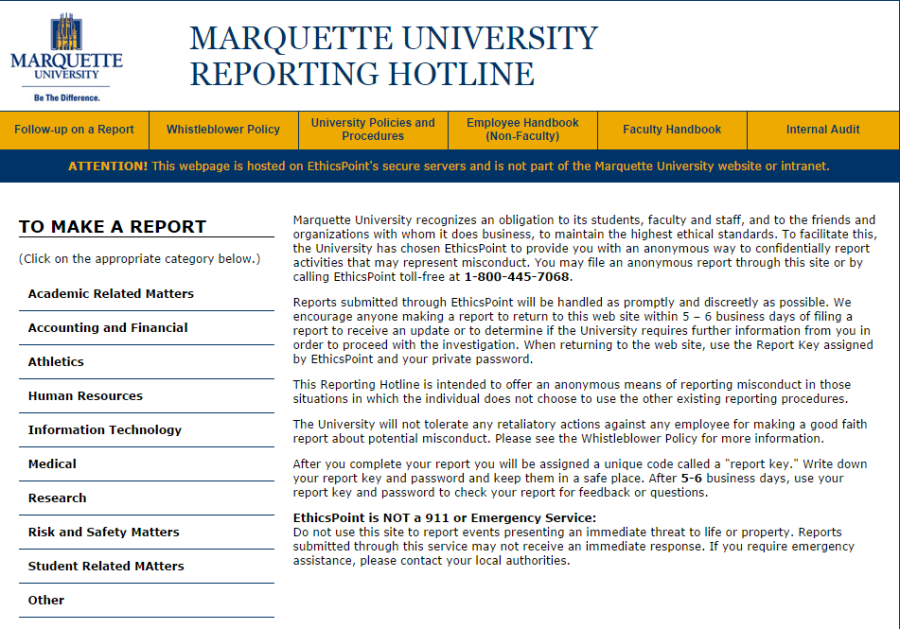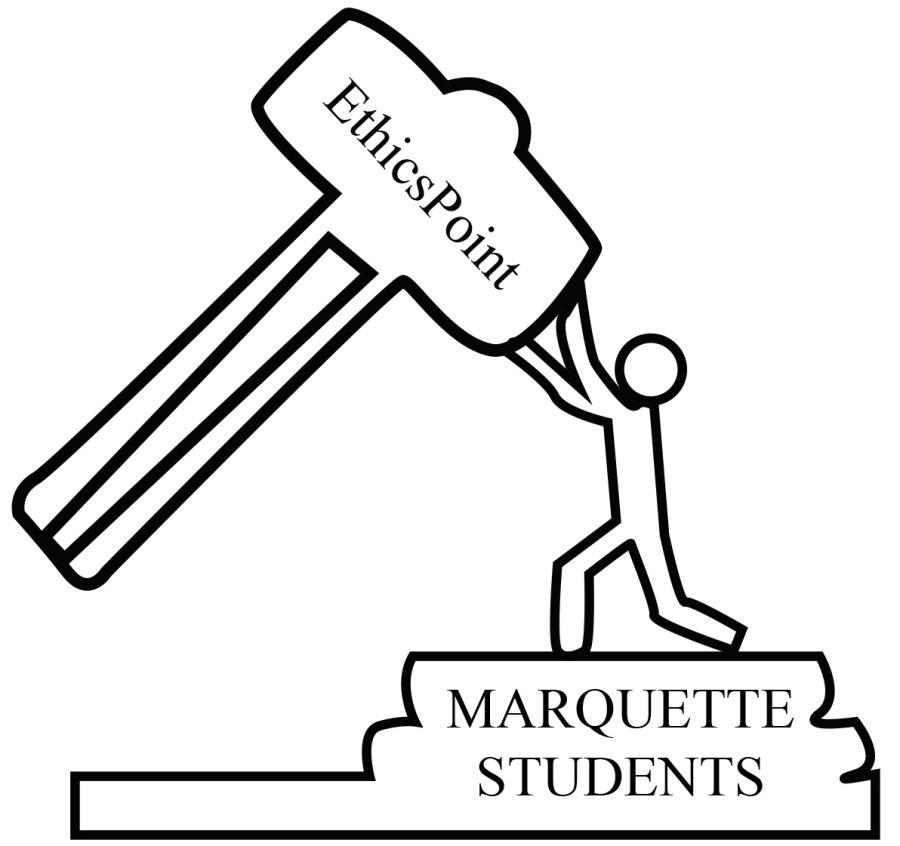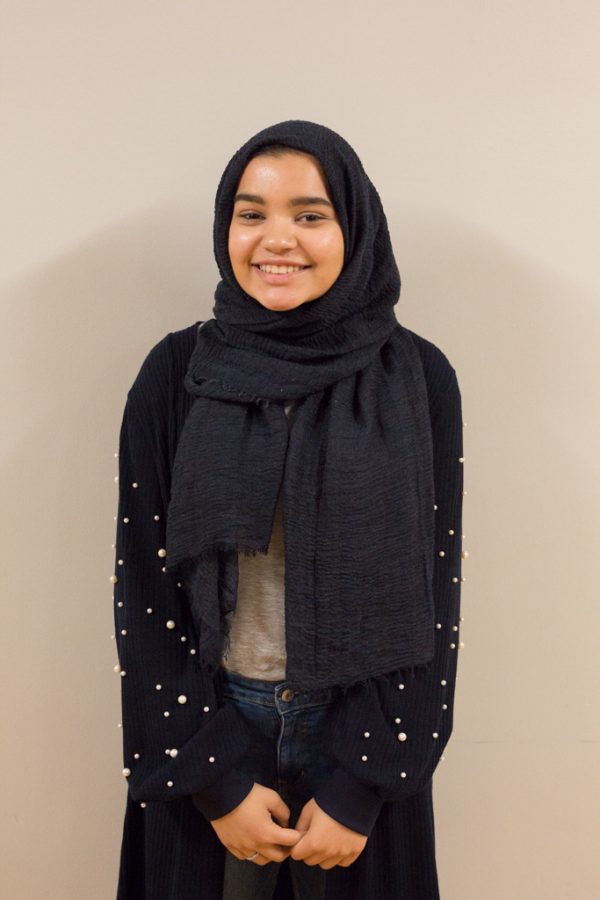A group of protesting students at Syracuse University organized a sit-in in response to a rush of overt white supremacist and anti-Semitic rhetoric and actions on campus. Within the past two weeks, students have shouted racial slurs at their peers, anti-Semitic and racist graffiti has been reported multiple times and a white supremacy manifesto has been shared to numerous students’ phones through AirDrop.
The protesting students created a list of 19 concerns for creating a safer university environment, all of which have been addressed by the university.
Protesting, international and Jewish students presented specific concerns and recommendations on Nov. 21, 2019.
In lieu of the recent events at Syracuse, I believe that Marquette students, faculty and staff need to acknowledge the threatening college climates across the country and ask ourselves what we can do to create a safer, healthier campus.
While this situation may not be exactly parallel to Marquette’s, it would be ignorant to say that similar hate crimes and hate speech don’t occur on our campus.
After one semester at Marquette, I have heard an alarming amount of racist rhetoric in everyday conversation and have heard about racist situations that have happened in past years. An example of this is the circulation of a photo of non-black males holding fake guns, one of which is pointed at a black doll, which was sent to a student last April.
We cannot wait for another blatantly racist situation to push Marquette to consider implementing change on our campus. Moreover, the more implicit biases that are in effect on a day-to-day basis still cannot be ignored just because they are less overt.
That is not to say the university has made no progress with this endeavor. For instance, students proposed an anonymous tip line for addressing racial bias, hate speech and hate crimes, provided through a site called EthicsPoint.
While this is a step in the right direction, the line could use improvement.
EthicsPoint’s response time is extremely slow, taking five to six days for the reporter to receive a response. Moreover, when the reporter receives a response, there is no notification. Instead, the reporter must continuously type in a password to check the status of their report. It would be more efficient if the Marquette hotline could be reported easily from a handheld device, whether that be through a direct phone call or SMS messaging.
Ideally, these reports should be exchanged directly between witnesses and an actual person, such as someone from the Center of Diversity and Inclusion. Creating a more direct line would legitimize the issue and ensure direct involvement from the university itself.
Because racial injustice occurs everywhere in this country, Marquette should also recognize the legitimate threat it poses and educate Marquette community members. By doing so, the university will take preventive steps and be in a better position to respond to racism on campus.
Syracuse students suggested that their school add anti-racism training to the EverFi modules, the same site that provides education on alcohol and sexual harassment.
It’s strange that students are required to receive safe alcohol consumption training but not tolerance and equity training. Marquette students and faculty should be required to take an online test to evaluate their implicit bias as well as a subsequent course on the dangers of bias and how to correct it.
Marquette should implement this training as a requirement for students. Creating a program like this gives the university more than enough justification to penalize students that instigate or perpetuate hate speech and hate crimes properly.
These are just two specific demands that Marquette should consider implementing into our own community.
Comparing Syracuse with our own campus and creating and updating certain resources can create a network across the Marquette community to make it better equipped to combat racism.
This story was written by Sheila Fogarty. She can be reached at [email protected].







